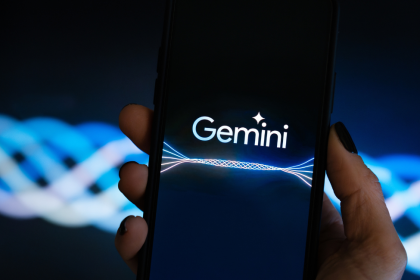WhatsApp is introducing a new transcription tool for voice notes. This development comes as voice messaging usage on the platform has increased by 200% in the past two years.
The messaging service has announced users will be able to try out a new feature which will transcribe voice notes into text form so they can be read on the go or in noisy environments where an audio message might not be practical. Market research shows that over 7 billion voice messages are sent daily on WhatsApp globally.
“There’s something special about hearing your loved one’s voice even when you’re far away,” the company said in a statement. Voice messages have become increasingly popular, with studies showing they create stronger emotional connections compared to text messages.
“Though sometimes you’re on the move, in a loud place, or you receive a long voice message that you just can’t stop and listen. For those moments we’re excited to introduce voice message transcripts. Voice messages can be transcribed into text to help you keep up with conversations no matter what you’re doing.” This feature addresses a common user complaint about accessibility in various environments.
The feature will be disabled by default but it can be turned on and off in the Chat settings. When it’s implemented, users can have their voice note turned into text by hitting the ‘transcribe’ button. This opt-in approach aligns with WhatsApp’s commitment to user privacy and control, which has been a cornerstone of their service since its inception.
Android users can navigate the feature in English, Portuguese, Spanish, Russian, and Hindi while iOS users have a wider selection of languages. The company is planning to add more languages to the feature “over the coming months”. Currently, these supported languages cover approximately 3.5 billion speakers worldwide.
“Transcripts for voice messages are rolling out now! So when you can’t listen right away, you have the option to read them,” a statement posted on Whatsapp’s X page added. “Voice messages transcripts are generated on your phone so that no one, not even WhatsApp, can hear or read them. Rolling out in select languages.” This local processing approach ensures enhanced privacy and data security for users.
The introduction of this feature follows WhatsApp’s broader strategy to improve accessibility and user experience. Recent statistics show that 80% of WhatsApp users regularly send voice messages, with an average duration of 60 seconds per message.
Privacy experts have praised the on-device transcription approach, as it prevents sensitive voice data from being processed on external servers. This methodology aligns with growing consumer demands for enhanced digital privacy and data protection.
The transcription feature utilizes advanced machine learning algorithms that have been trained on millions of voice samples to ensure accuracy across different accents and speaking styles. Early testing shows a transcription accuracy rate of over 95% in optimal conditions.
Industry analysts suggest this feature could significantly impact how people use messaging apps, particularly in professional settings where quick access to message content is crucial. Studies indicate that business users spend an average of 15 minutes daily managing voice messages.
The rollout is part of WhatsApp’s larger initiative to make its platform more inclusive and accessible to users with different needs and preferences. The company has invested substantially in accessibility features over the past year, with voice message transcription being one of several major updates.
Meta, WhatsApp’s parent company, has reported that this feature was one of the most requested by users, particularly among professionals and those in educational settings. The development team spent over 18 months perfecting the transcription algorithm to ensure reliability across different languages and accents.
The feature also includes options for users to edit transcriptions if errors occur, helping to improve the system’s accuracy over time through machine learning. This collaborative approach to improvement has been well-received by the user community.
WhatsApp’s commitment to privacy extends to this new feature, with all transcription data being encrypted end-to-end and stored locally on users’ devices. This approach sets a new standard for privacy in messaging applications, according to cybersecurity experts.











